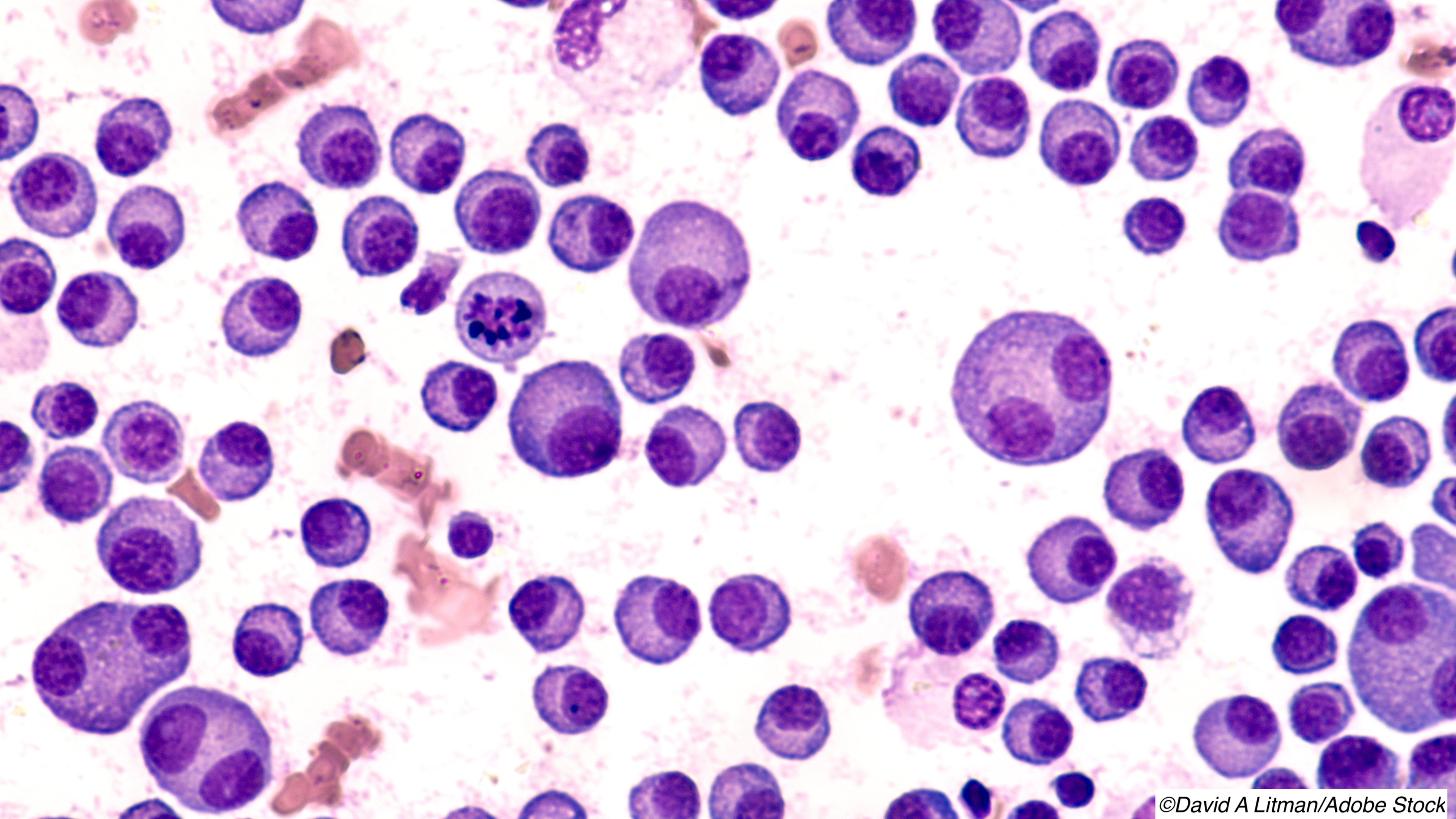In an open-label, randomized trial, adding isatuximab to carfilzomib–dexamethasone significantly improved both progression-free survival and depth of response in patients with relapsed multiple myeloma, researchers reported in a study published online by The Lancet.
“At a median follow-up of 20.7 months (IQR 19.4–22.1), the addition of isatuximab to carfilzomib–dexamethasone showed a significant improvement in progression free survival (IRC assessment) with an HR of 0.53 (99% CI 0.32–0.89, one-sided P=0.0007),” wrote Philippe Moreau, MD, Department of Hematology, University Hospital Hôtel-Dieu, Nantes, France, and co-investigators of the IKEMA study group. “The median progression-free survival of 19.15 months (95% CI 15.77–not reached) in the control group was consistent with the protocol assumption of 19 months. At 2 years, estimated progression-free survival was 68.9% (95% CI 60.7–75.8) in the isatuximab group versus 45.7% (35.2–55.6) in the control group. Progression-free survival according to investigator assessment was consistent with the IRC assessment (HR 0.58 [99% CI 0.36–0.92], P=0.0010).”
Moreau and colleagues concluded that the IKEMA results support this triple-drug regimen as a “new standard of care.”
In a commentary that accompanied the IKEMA findings, Michele Cavo, MD, and colleagues from the University of Bologna in Bologna, Italy, agreed that the isatuximab with carfilzomib–dexamethasone triplet approach is a new standard of care for patients with relapsed myeloma, but they pointed out that it is not the only option.
As Cavo et al explained, “…treatment algorithms for the growing populations of patients exposed to bortezomib and refractory to lenalidomide upfront, or who are refractory to both these agents (known as double refractory) still need further refinement. Very few studies have been designed to specifically address the issue of optimal treatment after refractoriness to lenalidomide in the first regimen. In the IKEMA study, 99 (33%) of 302 patients were refractory to lenalidomide in any previous treatment line, and even fewer were refractory to lenalidomide in the last previous therapy line (67 [22%]). These findings are one of the limitations of the study. However, the observation of a median progression-free survival not yet reached in both subgroups of lenalidomide-refractory patients after a median follow-up of 21 months is similar to or better than the results from other studies in lenalidomide-exposed and lenalidomide-refractory subsets of patients.”
The IKEMA phase III trial was a multi-national, prospective, open-label, parallel group study conducted at 69 centers in 16 countries. It enrolled patients with relapsed or refractory multiple myelomas after previous exposure to up to three lines of therapy.
Patients were assigned to either isatuximab 10 mg/kg intravenously weekly for the first 4 weeks, then every 2 weeks plus carfilzomib and dexamethasone, or the carfilzomib and dexamethasone doublet.
“The primary endpoint was progression-free survival and was assessed in the intention-to-treat population according to assigned treatment,” they explained. “Safety was assessed in all patients who received at least one dose according to treatment received.”
The median time to first response in both groups was 32 days, but the duration of response was longer in the isatuximab group than in the controls, at a hazard ratio (HR) of 0.43 (95% CI 0.27-0.67). “Time to next treatment was longer in the isatuximab group than the control group (HR 0.57 [95% CI 0.38–0.84]),” they added.
While they acknowledged the risks of cross-trial comparisons, Moreau and colleagues noted that the progression-free survival observed in IKEMA was longer than the median progression-free survival reported in the CASTOR trial, which was also a study of an anti-CD 38 proteasome inhibitor combination. Likewise “the HR in the isatuximab group of IKEMA was also numerically more favourable than in the CANDOR study (0.63 [95% CI 0.46–0.85]; daratumumab–carfilzomib dexamethasone vs carfilzomib–dexamethasone).”
The open-label design of the IKEMA trial is an obvious limitation, but Moreau et al used a central laboratory to assess M protein, MRD and baseline cytogenetics in an effort to limit bias. Other possible limitations included the small number of patients refractory to lenalidomide, which was noted in the commentary, as well as the small number of Black or African-American patients—just 3%—but the authors pointed out that other studies had the same lack of racial diversity in recruitment.
The authors concluded that the “significantly longer progression-free survival” and better “depth and quality of response” observed with the isatuximab-carfilzomib-dexamethasone triplet support its use as a new standard of care.
-
The findings from this study suggest that the addition of isatuximab to carfilzomib and dexamethasone provides a significant benefit in progression-free survival over carfilzomib and dexamethasone alone among patients with relapsed multiple myeloma.
-
Be aware that in this open-label study, in patients with relapsed multiple myeloma, the addition of isatuximab to carfilzomib and dexamethasone resulted “in an improved depth and quality of response, with higher rates of very good partial response, complete response, minimal residual disease negativity, and complete response with minimal residual disease negativity.”
Peggy Peck, Editor-in-Chief, BreakingMED™
The IKEMA study group was funded by Sanofi.
Moreau reported honoraria from Amgen, Celgene, Janssen, Novartis, and Takeda; and a consulting or advisory role for Amgen, Celgene, Janssen, Novartis, and Takeda.
Cavo reported personal fees from Celgene Bristol Myers Squibb (BMS), Janssen, Sanofi, AbbVie, GlaxoSmithKline, Amgen, Takeda, and Adaptive Biotechnologies, outside the area of work commented on here.
Tacchetti reported personal fees from Celgene BMS, Janssen, Sanofi, AbbVie, Amgen, and Takeda,outside the area of work commented on here.
Zamagni reported personal fees from Celgene BMS, Janssen, Sanofi, Amgen, and Takeda, outside the area of work
commented on here.
Cat ID: 468
Topic ID: 78,468,730,468,192,925




Create Post
Twitter/X Preview
Logout